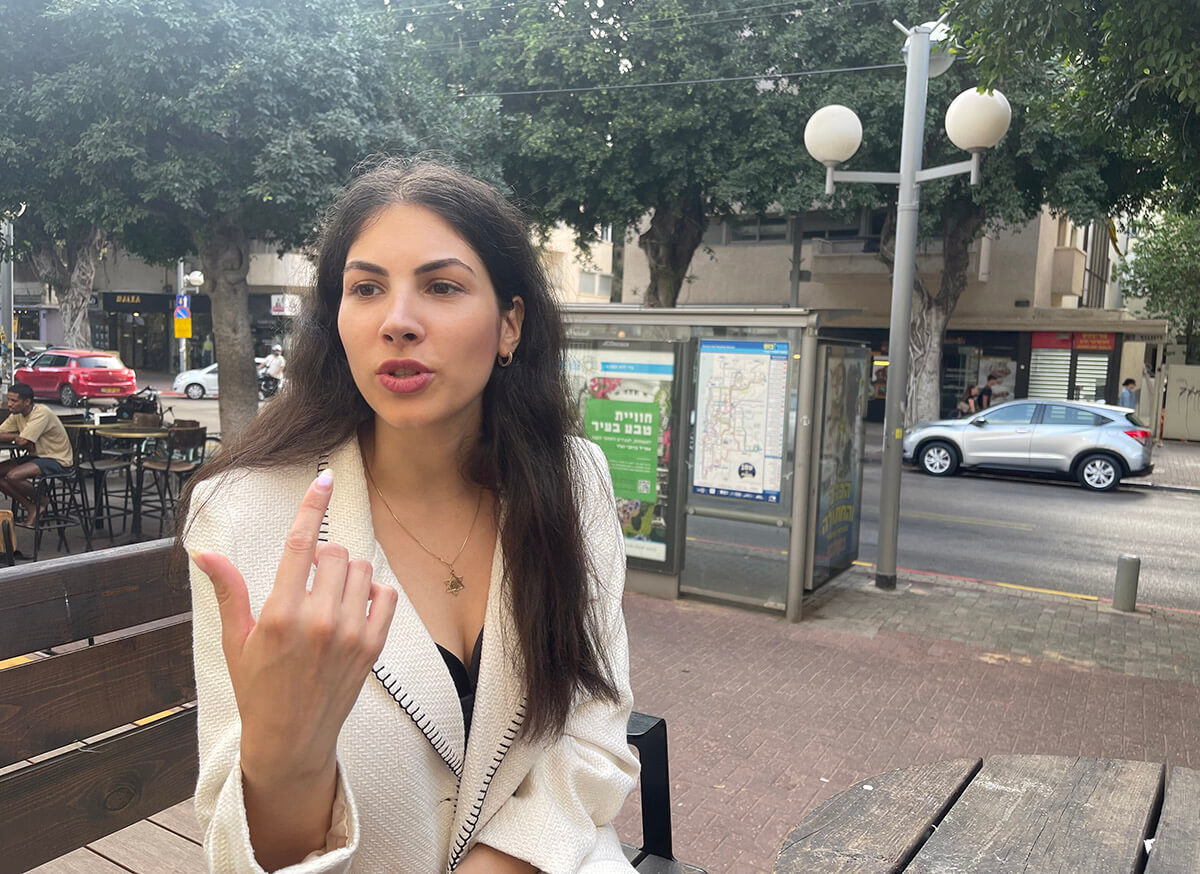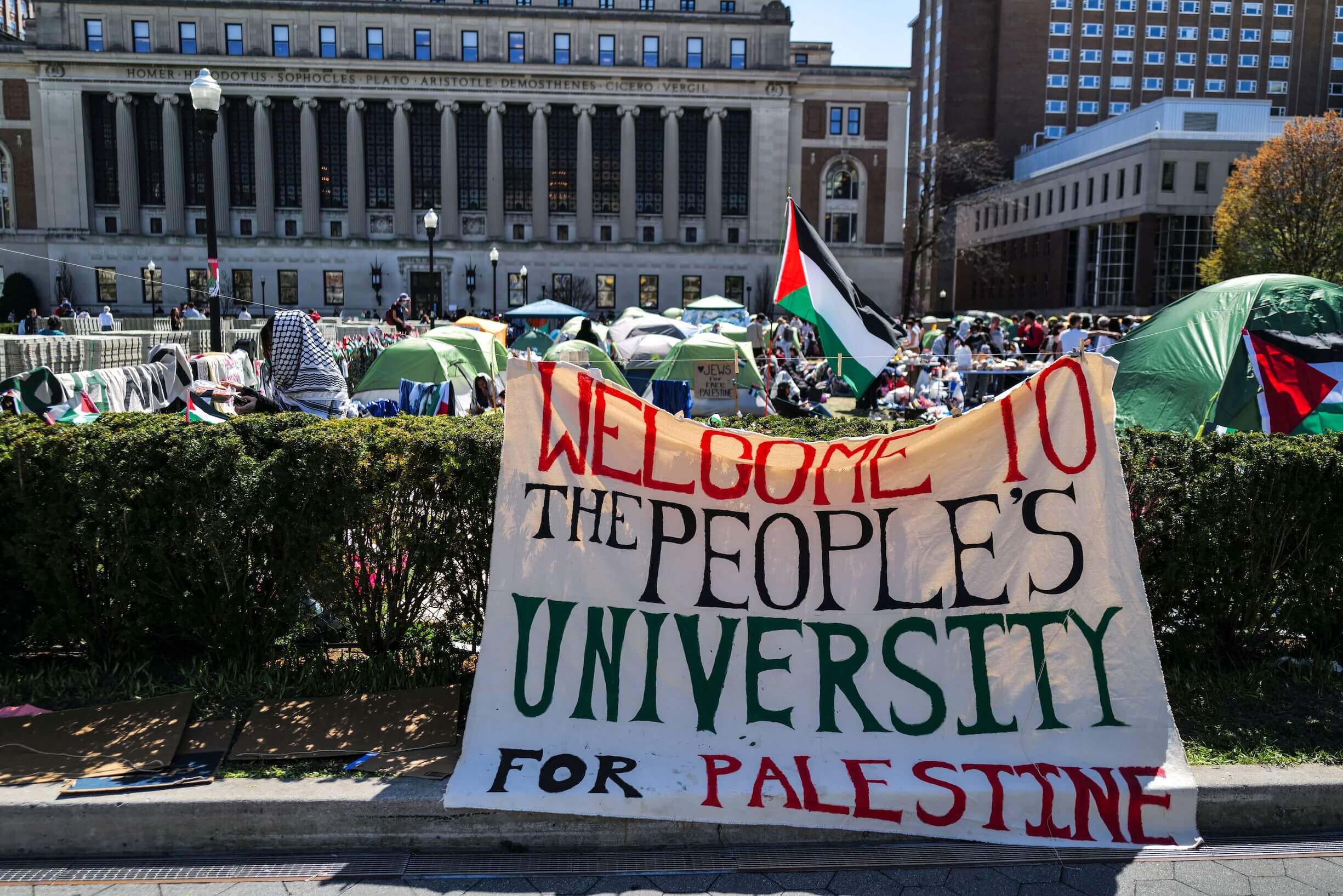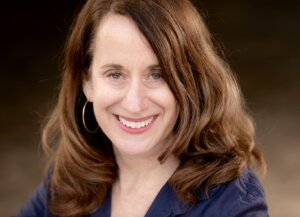Israelis see antisemitism — and foreign interests — as fueling campus protests
‘I feel safer here where I’m protected as a Jew,’ American student in Israel says, despite living amid war

“We’re hearing chants about burning Tel Aviv to the ground,” said Yana Naftalieva, a 26-year-old Tel Avivian and president of the World Union of Jewish Students. Photo by Susan Greene
TEL AVIV — If protesters on American campuses are trying to make Israelis reconsider their country’s policies toward Palestinians, that message isn’t getting across.
“What I’m seeing with these demonstrations is just an excuse for all-out Jew hatred,” said Fleur Hassan, the former deputy mayor of Jerusalem.
“We’re not hearing chants about helping Palestinians. We’re hearing chants about burning Tel Aviv to the ground,” added Yana Naftalieva, a 26-year-old Tel Avivian and president of the World Union of Jewish Students, which represents more than 800,000 students globally, including those on more than 60 campuses in the U.S.
She added: “Let’s be honest. These protests are about one thing, and one thing only: antisemitism.”
News about the demonstrations spreading at colleges in the United States has been dominating the headlines here. All of the 21 Israeli Jews I spoke with perceive protesters’ rally cries as attacks on Jews writ large. Most also told me, without evidence, that American college kids are being manipulated, if not also paid, by Hamas, Qatar, Iraq or China to undermine Israel and Jews.
“Those who feel that these are just loose demonstrations are naive,” Uri Sivan, president of the Technion — Israel Institute of Technology, told me.
When pressed on specifically what leads him to believe foreign interests are organizing and funding protests on U.S. campuses, Sivan responded, “I’m not going to go into that,” and said several times that he is “not political.”
The Haifa-based Technion, citing what it called “denialism and false information” about “Israel’s just and unavoidable response to the massacre on Oct. 7,” has invited Jewish undergraduate and graduate students, as well as academic faculty living in the U.S. and elsewhere, to join its campus as a safe haven.
Along with Sivan, presidents of the Hebrew University of Jerusalem, Tel Aviv University, the Weizmann Institute of Science, Ben Gurion University of the Negev and four other universities have signed a letter pledging to help Jews find a “welcoming academic and personal home” in Israel.

“I’m feeling really, really disturbed by the protests, like I’m in danger for my identity and don’t want to go home,” said Max Ostroff, 18, from Newton, Massachusetts, now in his seventh month in a year-abroad program here “learning how to live like an Israeli.”
Ostroff points to the irony that his parents are worried about his safety in Israel, and he’s worried about it in the U.S.
“I just spent the night on the floor of a bomb shelter as missiles from Iran flew overhead, yet I feel safer here where I’m protected as a Jew,” he said. “Whereas in America, anyone on the street could be after me.”
“More than ever before, we really need Israel and have a secure place to be,” added Talia Agam, a 25-year-old from Portland, Oregon, who made aliyah five years ago and is in her second year in a business and international relations program in Jerusalem at Hebrew University, which is launching a new degree program for English speakers.
Hassan, who serves as secretary general of the Federation of United Zionists, is raising money for a new organization that encourages Jewish undergraduates from the U.S. and other countries to complete their degrees, in English, in Israel. The program is consistent with Israelis’ widely held view that this is the only safe place for Jews.
Hassan is among several Israelis — both in and out of academia — who had especially harsh words for the American Jews protesting Israel.
“Unfortunately these kids are very confused,” Hassan said. “They’ve been brainwashed into justifying Jews’ existence by supporting everybody else’s cause, including a terror group that hangs gay men off rooftops and an ideology that gives women no rights. That’s social justice to them.”
She also blames the news media for what she believes are deceptive depictions of Gaza continually on the brink of catastrophe.
“They’ve been on the brink of losing fuel, water and food for weeks, for months now, but somehow everything’s still intact,” she said. “There’s something much more shadowy beyond this and the protests, and everybody keeps ignoring it.”
Naftalieva dismisses suggestions that American protesters have been bought and paid for by foreign interests, but wishes they would realize “Israel is not the big oppressor they think we are.”
“They have to realize we never asked for or wanted this war. We were attacked. We’re trying to protect our people, just like any other country would.”

















